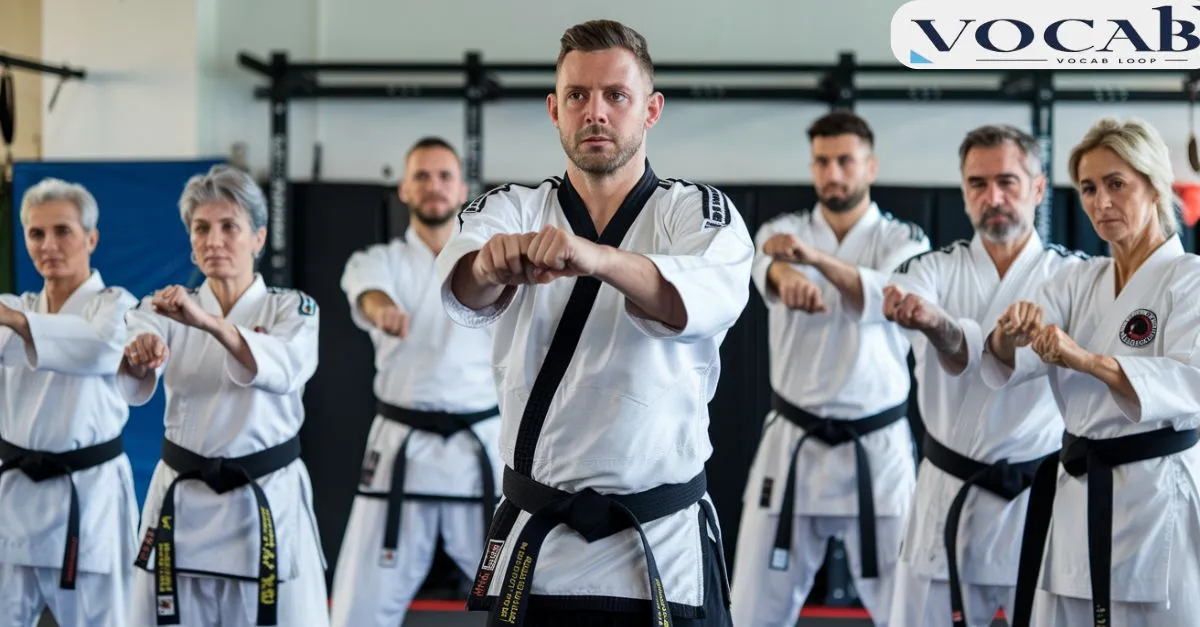When it comes to the words training or trainning, it’s important to know which one is correct. Many people confuse these two terms, especially because they sound alike. However, only training is the correct word in English.
Trainning is a common misspelling, and this article will help you understand why training is the proper term and how to avoid mistakes in both your professional communication and everyday usage.
Understanding Training and Trainning
The term training refers to the process of learning or teaching specific skills. It can be used in various contexts, such as personal development, professional growth, or preparing for a specific task. For example, business training is used to teach employees the necessary skills to perform their jobs, while physical training is essential for improving athletic performance.
On the other hand, trainning is a misspelling of the word training. Many people mistakenly add an extra “n” due to confusion with other English spelling rules, but it is not the correct form. Remembering to use training instead of trainning is essential for clear and professional communication.
Is the Training Word Correct?

Training is absolutely the correct form to use. In both American English and British English, training is the proper spelling. This word is commonly used in various fields, such as corporate training, employee onboarding, leadership development, and even in sports.
Whether you are teaching a new skill, improving existing abilities, or preparing for a new job role, training is the word you need.
Definition:
Training refers to the act of teaching or learning specific skills or knowledge. It can involve both formal and informal methods of instruction. In the workplace, training often involves structured programs designed to help employees develop the skills necessary for their roles.
Meaning:
In general, training means any activity or process aimed at improving a person’s abilities or knowledge in a specific area. It could involve anything from formal classroom learning to hands-on experience or online courses through platforms like Coursera or Udemy.
Is the Trainning Word Correct?
Trainning is incorrect and should never be used in writing or speech. It is a common misspelling that occurs because some people mistakenly double the consonant “n.” However, this spelling does not follow any established English spelling rules.
There is no reason to add an extra “n” in the word training. In fact, using trainning instead of training can make your communication seem less professional.
Definition:
Trainning is a misspelling and not recognized in the English language. If you come across this term, it’s always a mistake, and you should correct it to training.
Meaning:
Trainning is not a valid word, and using it can confuse your audience, especially in professional settings where accuracy and attention to detail matter. Always choose training to avoid these mistakes.
Quick Summary
The correct word to use is training. It refers to the process of learning new skills or knowledge, whether it’s in a professional, personal, or educational context. Trainning is a misspelling and should be avoided.
Keep in mind that training is used across many fields, including employee onboarding, business training, and leadership development. If you want to maintain professional communication, always use training.
How to Remember the Correct Spelling

To help you remember that training is the correct form, think about words like rain, gain, and main. These words all contain only one “n,” so it’s easy to remember that training follows the same rule.
While it might be tempting to double the “n,” especially if you’re thinking of other words like beginning, training is a special case.
Training or Trainning: Parts of Speech
Both training and trainning can function as nouns, but only training is grammatically correct. Training can also be used as a verb in certain contexts, like “I am training for a marathon,” where it refers to the act of learning or practicing. Trainning cannot be used as a verb because it is not a correct word.
Pronunciation of Training or Trainning
The pronunciation of training is /ˈtreɪnɪŋ/, with a long “a” sound and one “n.” Many people mispronounce trainning, but since trainning is incorrect, there is no specific pronunciation rule for it. Stick to the correct training, which is clear and widely accepted.
Side-by-Side Comparison
| Correct Word | Incorrect Word |
| She is training for a new job. | She is trainning for a new job. |
| He completed his training program. | He completed his trainning program. |
| Training is essential for career growth. | Trainning is essential for career growth. |
As shown above, training is the only correct word, while trainning is always a misspelling.
Which One Is More Acceptable: Training or Trainning?
Without a doubt, training is the correct and only acceptable form. Trainning is never used in any professional or academic context. To maintain proper grammar rules and clear communication, always use training.
Training in British English

In British English, the correct form is still training. There is no difference in spelling between British and American English when it comes to this word. Whether you are writing for a UK or US audience, training remains the standard.
Training in American English

In American English, just like in British English, training is the correct word. It is used in a wide variety of settings, including business training, employee onboarding, and product training.
Trainning is not recognized in American English, so always ensure you’re using the correct spelling.
Trainning in British English
In British English, trainning is not used either. It is considered a spelling mistake. The correct spelling is training, and this is the form you should use in all formal and informal contexts.
Trainning in American English
Similarly, in American English, trainning is also incorrect. Always use training to maintain accurate spelling and ensure your writing is grammatically correct.
Transcription of Training
The phonetic transcription of training is /ˈtreɪnɪŋ/. This is the standard pronunciation, and it should be used in both American and British English.
When writing, make sure to use only one “n” in training to avoid the misspelling trainning.
The Verdict: Training is Correct
The correct word is training, not trainning. If you want to sound professional and maintain clear communication in your writing, it’s crucial to always use training.
Whether you’re writing an email, preparing a training program for new employees, or developing leadership skills, training is the only acceptable form.
Common Misconceptions
One common misconception is that trainning might be an acceptable variant of training. However, trainning has never been a correct spelling in any form of English.
If you want to communicate clearly and effectively, always double-check your writing to ensure you’re using the correct spelling.
Impact on Professional Communication
Incorrect spelling can have a significant impact on professional communication. Whether it’s in emails, reports, or presentations, using.
The wrong spelling—like trainning—can create confusion and make you appear less credible. Spelling matters, especially in business settings where clear communication is key.
Training in Various Fields

Training plays a vital role in many fields. From employee onboarding in business to education programs in schools, training is essential for skill development and professional growth.
In the healthcare industry, for instance, training ensures that workers are up-to-date with the latest medical practices. Training programs can vary greatly depending on the industry, but they all serve the same purpose: improving the knowledge and abilities of individuals.
Glimpse into Different Types of Training Programs:
- Employee onboarding
- Leadership development
- Product knowledge training
- Business training
- Technical skill training
The Evolution of Training Methods
Over the years, training methods have evolved significantly. In the past, most training was done in person, through classroom sessions or hands-on practice.
Today, however, online learning platforms like LinkedIn Learning or Coursera have revolutionized how training is delivered. People can now learn anywhere, anytime, using various training programs and resources.
The Future of Training

The future of training is closely linked to technology. Artificial intelligence, augmented reality, and virtual reality are beginning to play a larger role in training programs.
These technologies allow learners to engage with content in new and innovative ways, making training more interactive and effective.
Measuring Training Effectiveness
To ensure that training programs are successful, it’s important to measure their effectiveness. Metrics like test scores, employee feedback, and performance tracking
are often used to evaluate how well a training program has improved skills. Companies may also use key performance indicators (KPIs) to assess the impact of training on business outcomes.
Origins of Training or Trainning
The word “training” originates from the Old English term “trēowan” which meant “to drag or pull,” evolving over time to mean “to instruct or teach.” The word became more widely used as various fields developed specific skill-building methods, making “training” central to both professional and personal growth. This term continues to represent structured learning processes, whether in workplaces, schools, or specialized fields like sports and medicine.
On the other hand, “trainning” is a common misspelling due to the confusion around double consonants in English. The correct form does not require a double “n,” as “train” remains unchanged when adding “-ing.” English spelling rules specify that verbs ending in a vowel-consonant combination—like “train”—do not double the last consonant unless the last syllable is stressed, which is not the case here.
Synonyms of Training:
- Instruction
- Education
- Development
- Teaching
- Coaching
- Tutoring
- Practice
- Guidance
- Preparation
- Skill-building
Common Usage Examples

Training:
- I am currently in training to become a project manager.
- Our training session was really informative.
- The company offers extensive training for new hires.
- She completed her training in six months.
- Training for the marathon starts next week.
- I need to finish my training before I can start the new job.
- They offered training on how to use the new software.
- Training in soft skills is essential for career development.
- After the training, I felt more confident in my role.
- The training program was highly beneficial to my career.
Trainning:
- Incorrect usage: “She is trainning for a race.”
- Incorrect usage: “We finished our trainning program yesterday.”
- Incorrect usage: “I need trainning to improve my communication skills.”
- Incorrect usage: “His trainning for the job took six weeks.”
- Incorrect usage: “We are doing some trainning for our new employees.”
- Incorrect usage: “Her trainning helped her become an expert in sales.”
- Incorrect usage: “After completing the trainning, I passed the exam.”
- Incorrect usage: “The trainning session was very detailed.”
- Incorrect usage: “The trainning program included both theory and practice.”
- Incorrect usage: “I was trainning for months before the competition.”
FAQs
What is the correct spelling, training or trainning?
Training is the correct spelling. Trainning is a misspelling.
Can I use trainning in professional writing?
No, trainning is incorrect. Always use training in professional writing.
What does training mean?
Training refers to the process of learning or teaching specific skills or knowledge.
Why is trainning a mistake?
Trainning is a mistake because it follows no spelling rules and adds an extra “n” unnecessarily.
How can I avoid making the mistake of using trainning?
Always remember to check your writing and use training when referring to skill development or learning activities.
Conclusion
The correct spelling is training. Using trainning is a common misspelling that can negatively impact your professional communication.
Whether you’re focused on employee onboarding, leadership development, or learning new skills, always ensure you’re using the correct spelling: training.

Alex Hormozi is a seasoned blogger at Vocab Loop, known for his deep insights into language, vocabulary, and grammar. With years of experience in writing, Alex shares practical tips and effective strategies to help readers improve their linguistic skills and enhance their writing abilities.

